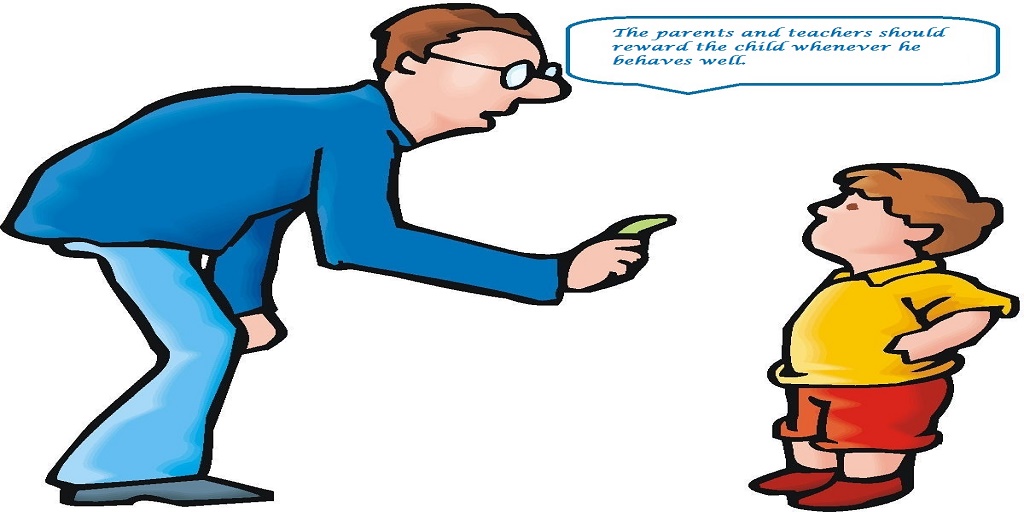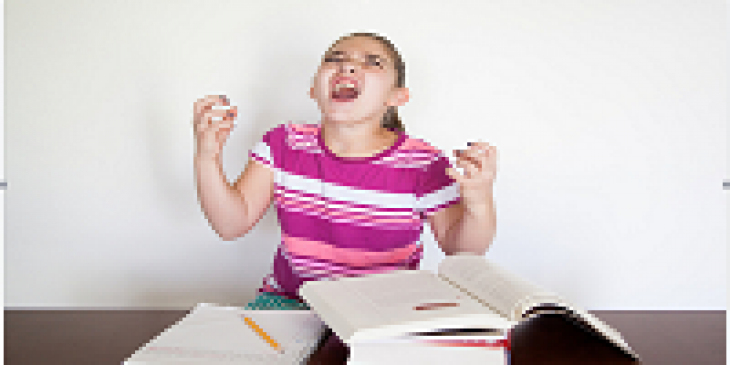Know the difference between mischievous and behavioural disorder.
Keeping the current generation in mind, parents find it increasingly difficult to have control of their child. Inculcating the value of discipline has become no less than a huge task for parents lately. What remains a cause for concern is to identify the extremeness of the conduct of the child, to be able to acknowledge when the child needs special attention. It is vital to know that it’s normal for the child to be playful or even mischievous but what isn’t normal is the extremeness of such behaviour.
To acknowledge the difference between mischievousness and a call for help (behavioural disorder) following ways would be helpful:
Mischievousness: being playfully active :
It is quite naturalistic for children to be really active and playful and their involvement in being inquisitive and inquisitive is quite genuine. All these behavioural aspects are a part of the growth of the child and there is no reason as such to worry.
Following are the indications of a child who is active yet naughty in the usual way:
1. Loves indulging in activities that require movement.
2.Preference for outdoor activities: Would prefer outdoor activities such as cycling, would also enjoy tasks that are creative just as doodling, they mainly do not really like a rigid pattern to be followed.
3.Disobedience: Would also make attempts to disobey elders especially teachers and parents, mainly they deny being sincere.
4. Throwing tantrums: crying out loud, being vociferous are normal ways in which the child displays irritation.
5.Excitability: being enthusiastic and lively all day long is what most of the children love doing.
6.The long list of complaints from the school: getting complaints from the school authority that the respective child is not in the ideal behaviour is quite normal and it is nothing to be baffled about.
As already mentioned, it is important for parents to acknowledge the intensity of the mischievousness of the child. When the child is playful or even naughty there is no reason to be worried because such conduct is bound to take place, but when such behavioural traits shift or transform into hysterical ones there have to be certain cautious steps taken.
IS YOUR CHILD SIMPLY NOTORIOUS OR HAS ADHD?????? :
ADHD also is known as attention deficit hyperactivity disorder is a condition where there is a perpetual or an on-going pattern of inattention, impulsivity and hyper activeness consistently present in the child
Indications of the onset: The respective projections would be present in an ADHD child:
1.Inattentiveness :
A child possessing ADHD will have difficulty sustaining focus and is therefore always disorganized, symptoms projecting inattentiveness are:
Would find it difficult to have one task completed at a time. Will never make it a point to let anyone speak, a child with ADHD would always interrupt any individual while speaking.Would possess bad listening skills as there is a deficiency of attentiveness present in the child. All these traits of inattentiveness are not present due to lack or defiance of comprehension but simply because projecting focus is greatly absent in the child.
2.Impulsiveness:
Impulsiveness states that the child is up to making hasty decisions without having thought about them. The eagerness to react in a situation is always present in the child. Indications of a child with high sense of impulsivity are:
Speaking relentlessly is one of the witnessed hallmarks in a child.
Would make attempts to be the centre of attraction by speaking really loud or either speaking aggressively in social setups.
In many of the cases, problem-solving skills are not really developed in the child as the decision-making process is always carried out by sheer impulsivity.
3.Hyperactivity:
As the disorder itself suggests, hyperactivity is the most dominant trait in the child who has ADHD. A hyperactive child who has ADHD always suffers from restlessness and would barely make it a point to stay settled.
Indications of hyperactivity include:
Constant bodily movement, children with ADHD have the tendency to move about constantly.
Seeking pleasure from repetitive actions such as , dropping an object and picking it up again, rocking back and forth even constant head banging
Even in situations where composed state of mind is required, constant flapping of the hands, tapping, running aimlessly, excessive fidgeting, and all these activities are constantly present.
Although the sense of being impulsive, inattentive and hyper sounds deliberate, such is not the case because the flow of it turns out to be quite natural neurologically for them and thus the child shall not be blamed.
No matter how critical a disorder may sound there definitely is a room for hope and improvement which becomes easy to carry out through parental support and they are:
1.Parental behavioural therapy :
a)Existing parental skills are further improvised for an ADHD child, where the behaviour can be managed resulting to a better equation of parent child relationship.
b)Most of the times, parents themselves are way too dominant which would lead to further mental anarchy or damage of the child , with the help of such a solution(behavioural management) this phenomenon is progressed .
2)Behavioural therapy with children:
a)When seeking help from a professional the behavioural patterns or episodes of outbursts of the child are modified in a way where the child learns to project emotions in a harmless way.
b)The correct channelization of the energy, a child with ADHD would be directed to a path where there is an accurate usage of the enthusiasm that the child has. For example the child should be encouraged to participate in martial arts, dance and even sports so that healthy utilization of impulsivity is taken place.

3.Instrumental conditioning : The art of rewarding :
Praising the child even for the little achievements always does wonders , also phrases such as “ I really love how enthusiastic my child is “ rather than stating such as “ my child is a troublesome , a havoc and never sits at one place “ .
When the child no matter how young realises that everything that he does is accepted positively, negative emotions of the child then would be redirected to positive ones.When it comes to diagnoses of the child who has ADHD a, blend of medication and therapy work the best for the child.
However when the child is medicated with stimulants, amphetamine, methylphenidate or such medications maybe not much affective as they do not teach organizational skills and such skills can be worked better with therapeutic strategies
OPPOSITIONAL DEFIANT DISORDER or CONDUCT DISORDER.
As mentioned, naughtiness or constant mischievousness is a part of the growth of the child and there would be times when child displays disobedience, but there are degrees of such behaviour which parents should be concerned about
Those degrees mainly comprise of:
1.Frequency of the disrespectful behaviour
2.How disrespectful is the behaviour
3.How dangerous was the behaviour
If the child has turned out to be extremely naughty, disobedient or non-compliant for a prolonged period of time there are chances that the next level behaviour is shifting towards having OPPOSITIONAL DEFIANT DISORDER or CONDUCT DISORDER.
Indications of oppositional defiant disorder include symptoms such as:
1.Getting into an argumentative mood often with parents.
2.Refusing anything that elder’s state.
3.Constant disobedient behaviour
4.Turning out to be annoying by purpose and blaming others for the behaviour
5.Belligerent behaviour where physical violence is seen as well.
6.As the disorder itself explains, the child may oppose or retaliate every action from the end of parents.
One thing to be kept in mind is that these behavioural traits of the child should relentlessly exist in the child for the span of at least six months.If the actions persist then the chances are much higher for the child to have CONDUCT DISORDER which is antisocial behavioural traits. The projection of aggression is much intense in conduct disorder and kids who possess this have chances of entering adulthood as menacing and threatening criminals.
The hints of such behaviour include:
1. Constant violation of norms, (for example making attempts to scare school mates with knives, carrying alcohol in school or even indulging in physical violence in school authorities ).
2. Damaging properties that belong to others for either fun or sheer anger (harming properties of either school or society)
3. Causing harm to animals unnecessarily, throwing stones at stray animals or hitting them or even choking them on purpose.
4. The act of theft, stealing belongings of others or even cash. The thought and act of robbing usually begins at home and gradually develops outside as well.
HOW TO HAVE SUCH KIDS TREATED? : PUNISHMENT OR SEEKING PROFESSIONAL HELP?
Mischievous To deal with kids who behave so is the darkest and blue moment for the parents and to find a solution is never going to be smooth and easy. The only way to have such a problem fixed is to seek professional help and to avoid the series of punishment as they are just temporary solutions.
As mentioned, naughtiness or constant mischievousness is a part of the growth of the child and there would be times when a child displays disobedience, but there are degrees of such behaviour which parents should be concerned about
Those degrees mainly comprise of:
1.Frequency of the disrespectful behaviour
2.How disrespectful is the behaviour
3.How dangerous was the behaviour
If the child has turned out to be extremely naughty, disobedient or non-compliant for a prolonged period of time there are chances that the next level behaviour is shifting towards having OPPOSITIONAL DEFIANT DISORDER or CONDUCT DISORDER.
Indications of oppositional defiant disorder include symptoms such as:
1.Getting into an argumentative mood often with parents.
2.Refusing anything that elder’s state.
3.Constant disobedient behaviour.
4.Turning out to be annoying by purpose and blaming others for the behaviour.
5.Belligerent behaviour where physical violence is seen as well.
6.As the disorder itself explains, the child may oppose or retaliate every action from the end of parents.


Leave a Comment
To post comment, please